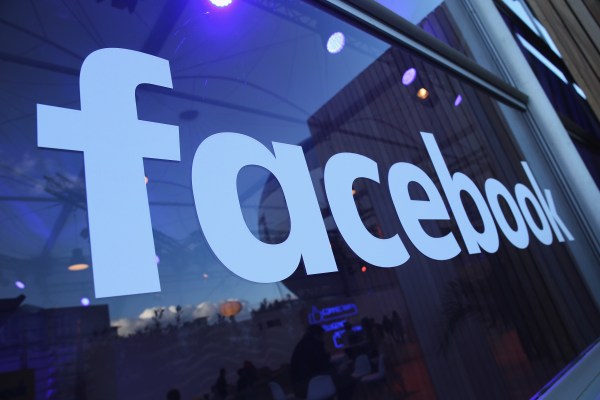Products You May Like
Facebook has reached a multi-year agreement to pay French publishers for resharing their content on its platforms, it announced today.
The social media giant said the licensing agreement with the Alliance of national and regional newspapers “means that people on Facebook will be able to continue uploading and sharing news stories freely amongst their communities, whilst also ensuring that the copyright of our publishing partners is protected.”
Facebook declined to specify how much it’s paying for the arrangement with l’Alliance de la presse d’information générale (APIG) in France when we asked. But in a blog post trumpeting the deal it wrote: “After constructive negotiations, this solution will further our investment in the news industry, and strengthen the news experience for both people and publishers on Facebook.”
The blog post also specifies that it will be investing “at least” a billion dollars to support media companies over the next three years — however that’s a collective pot not a France-only pot. So who is getting what exactly — and where — remains unclear.
Facebook’s largesse in France is not voluntary: The development relates to EU law which was updated to reform digital copyright rules back in 2019 to, among other tweaks, extend neighbouring rights to snippets of publishers’ content in response to criticism from the newspaper industry that adtech giants were freeloading off quality journalism that users of their platforms share.
France has been at the forefront of transposing the EU’s digital copyright reform into national law but the amended rules are set to apply across the bloc — so adtech giants like Facebook will need to strike multiple deals to cover the region. Hence that “at least” $1BN pot.
Google, meanwhile, already reached a deal with news publishers in France at the start of this year.
However it quickly came under scrutiny by the country’s competition watchdog over how it had approached negotiations with publishers. And this summer the French authority fined Google $592M for breaching an order related to the process — accusing it of failing to conduct good faith negotiations and withholding key information relevant to determine payments.
France’s competition watchdog was also unhappy that Google tried to unilaterally impose terms on publishers, seeking to push them to agree to a global news licensing product it has devised, called Publisher Curated News, rather than negotiate local terms, as the law requires.
It’s not clear if the authority’s aggressive enforcement against Google concentrated minds at Facebook to ink its own deal with French publishers — not least because the amount it’s paying for content resharing isn’t being disclosed — but it probably helped.
The French publishing alliance group who’s members have agreed terms with Facebook said only that the deal would generate “significant financing”, particularly emphasising the revenue uplift it would generate for its smallest members.
“This first step in the concrete implementation of neighboring rights shows that solidarity between publishers is key to efficiently defend their interests,” added Pierre Louette, chairman of the Alliance and CEO of Groupe Les Echos – Le Parisien, in a statement.
Also today, Facebook announced that it will be launching a French news service in January — which it said will give users “a dedicated space to access content from trusted and reputable news sources” — dialling up its efforts to showcase professional journalism on its platform as a direct result of legislation requiring it to pay for new reuse.
It’s a far cry from recent events in Australia — where, earlier this year, lawmakers were debating similar legislation related to paying for news content aggregation and reuse. And during that legislative push Facebook temporarily shut down news sharing in the county altogether — along with a whole bunch of other bona fide information sources, seemingly as a sort of ‘chaotic evil’ lobbying strategy to try to scare the country’s lawmakers into abandoning the idea.
What actually happened, though, was Australian lawmakers went ahead and passed a news bargaining code that applies to Facebook and Google this February.
And deals to pay for content reuse in Australia were duly struck between the pair and a number of publishers and broadcasters down under.
So the writing seems to be on the wall for adtech platforms getting a free pass to monetize attention generated by professional news content that’s passing over their platforms. As other countries outside the EU see big tech’s wallet being unlocked to pay for news reuse through changes to the law they will surely follow.
But as steady payments flow from tech giants to newsrooms — last year Google also announced a $1BN pot to pay for news licensing — democracy watchers may have reason to be concerned about dominant Internet platforms becoming a revenue source for a ‘free press’.
Both Google and Facebook are certainly wasting no time milking the publicity opportunity — suddenly claiming their platforms can now be relied upon as sources of “trusted and reliable news”. (Instead of, y’know, the outrage-driving clickbait and disinformation they have so often been found amplifying for a profit.)
“Our partnership with Alliance proves the benefits of a strong collaboration,” gushes Facebook’s blog post. “Likewise, we’ve been encouraged by the progress that’s been made elsewhere in Europe, and we hope for continued, constructive conversations.”
Developments it points to on that front are the recent launch of Facebook News in Germany, with new partners including Axel Springer, Frankfurter Allgemeine Zeitung, Handelsblatt and Tagesspiegel.
In the U.K., it also notes that it has entered into agreements with a number of publishers, including Conde Nast, The Economist, Guardian Media Group and Hearst.
